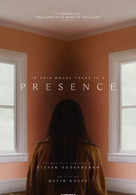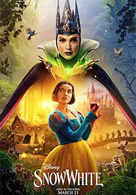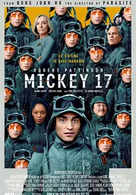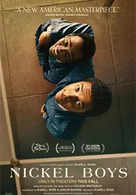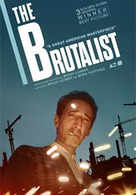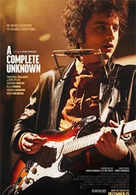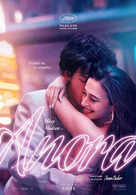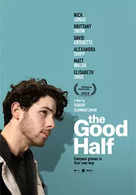Tuk Tuk Movie Review: A Quirky Fantasy Ride with Heart
Tuk Tuk Movie Review: Critics Rating: 3.0 stars, click to give your rating/review,With humour, mystery, and heartfelt moments, the film delivers an engaging ride, elevated by strong

Critic's Rating: 3.0/5
Story: Set against the rustic backdrop of a quaint village, Tuk Tuk follows the lives of three teenage boys who aspire to buy a camera but struggle to gather the funds. In a stroke of ingenuity, they decide to raise money by collecting donations during the Vinayaka Chavithi festival. Their plan takes an unexpected turn when they convert an old scooter into a three-wheeled auto-rickshaw for the idol procession and immersion ceremony. However, the vehicle soon develops a life of its own, responding to their questions and moving autonomously.
Review: Directed by C. Supreeth Krishna, Tuk Tuk is an earnest attempt at blending fantasy with a slice-of-life narrative. The film thrives on its unique concept, taking an everyday object and imbuing it with supernatural elements. The screenplay, particularly in the first half, is lighthearted and peppered with comedic moments, making for an engaging watch. The antics of Tuk Tuk itself—including its ability to communicate through movements—lend a certain charm to the film, making it particularly appealing to younger audiences.
What starts as an amusing spectacle soon takes a mysterious turn when the boys realise that the auto-rickshaw is possessed by a spirit. As they delve deeper, they uncover the tragic backstory of the entity trapped within Tuk Tuk. Their journey takes them through moments of fear, revelation, and ultimately, a heartfelt resolution that changes their perspective on life. Meanwhile, a love story between Shilpa (Saanve Megghana) and Naveen (Nihal Kodhaty) adds another emotional layer to the narrative.
Performance-wise, Harsh Roshan, Karthikeya Dev, and Steven Madhu, as the three teenagers at the centre, carry the film on their shoulders, displaying great energy and camaraderie. Their dynamic feels natural, and their comedic timing is on point. Saanve Megghana delivers a delightful presence, while Nihal Kodhaty holds his own in crucial moments. The supporting cast does justice to their roles, adding depth to the village setting.
Technically, the film benefits from impressive cinematography by Karthik Sai Kumar, which captures the lush rural landscapes beautifully. The use of warm tones and golden-hour lighting enhances the film’s visual appeal, giving it an inviting, nostalgic quality that complements its fantasy elements. The art direction deserves a special mention for designing Tuk Tuk in a way that feels both whimsical and believable. The background score, composed by Santhu Omkar, effectively complements the film’s tonal shifts, from playful to eerie. Editing by Ashwath Shivkumar keeps the pacing engaging, though some transitions could have been smoother. However, the dialect used in certain dialogues might feel inconsistent at times.
While the first half is breezy and entertaining, the second half slows down slightly, focusing on the emotional weight of the spirit’s story. The love track, while sweet, could have been more seamlessly integrated into the main narrative. Additionally, some unanswered questions linger by the film’s end, and a few logical inconsistencies might leave viewers puzzled. The climax, however, neatly ties back to the core message, hinting at the possibility of a sequel.
Tuk Tuk is a fun, offbeat fantasy drama that manages to keep audiences entertained despite a few bumps in the storytelling. Its quirky premise, coupled with engaging performances and a visually appealing village backdrop, makes it a watchable fare for those who enjoy supernatural tales with a local flavour.
Review: Directed by C. Supreeth Krishna, Tuk Tuk is an earnest attempt at blending fantasy with a slice-of-life narrative. The film thrives on its unique concept, taking an everyday object and imbuing it with supernatural elements. The screenplay, particularly in the first half, is lighthearted and peppered with comedic moments, making for an engaging watch. The antics of Tuk Tuk itself—including its ability to communicate through movements—lend a certain charm to the film, making it particularly appealing to younger audiences.
What starts as an amusing spectacle soon takes a mysterious turn when the boys realise that the auto-rickshaw is possessed by a spirit. As they delve deeper, they uncover the tragic backstory of the entity trapped within Tuk Tuk. Their journey takes them through moments of fear, revelation, and ultimately, a heartfelt resolution that changes their perspective on life. Meanwhile, a love story between Shilpa (Saanve Megghana) and Naveen (Nihal Kodhaty) adds another emotional layer to the narrative.
Performance-wise, Harsh Roshan, Karthikeya Dev, and Steven Madhu, as the three teenagers at the centre, carry the film on their shoulders, displaying great energy and camaraderie. Their dynamic feels natural, and their comedic timing is on point. Saanve Megghana delivers a delightful presence, while Nihal Kodhaty holds his own in crucial moments. The supporting cast does justice to their roles, adding depth to the village setting.
Technically, the film benefits from impressive cinematography by Karthik Sai Kumar, which captures the lush rural landscapes beautifully. The use of warm tones and golden-hour lighting enhances the film’s visual appeal, giving it an inviting, nostalgic quality that complements its fantasy elements. The art direction deserves a special mention for designing Tuk Tuk in a way that feels both whimsical and believable. The background score, composed by Santhu Omkar, effectively complements the film’s tonal shifts, from playful to eerie. Editing by Ashwath Shivkumar keeps the pacing engaging, though some transitions could have been smoother. However, the dialect used in certain dialogues might feel inconsistent at times.
While the first half is breezy and entertaining, the second half slows down slightly, focusing on the emotional weight of the spirit’s story. The love track, while sweet, could have been more seamlessly integrated into the main narrative. Additionally, some unanswered questions linger by the film’s end, and a few logical inconsistencies might leave viewers puzzled. The climax, however, neatly ties back to the core message, hinting at the possibility of a sequel.
Tuk Tuk is a fun, offbeat fantasy drama that manages to keep audiences entertained despite a few bumps in the storytelling. Its quirky premise, coupled with engaging performances and a visually appealing village backdrop, makes it a watchable fare for those who enjoy supernatural tales with a local flavour.












